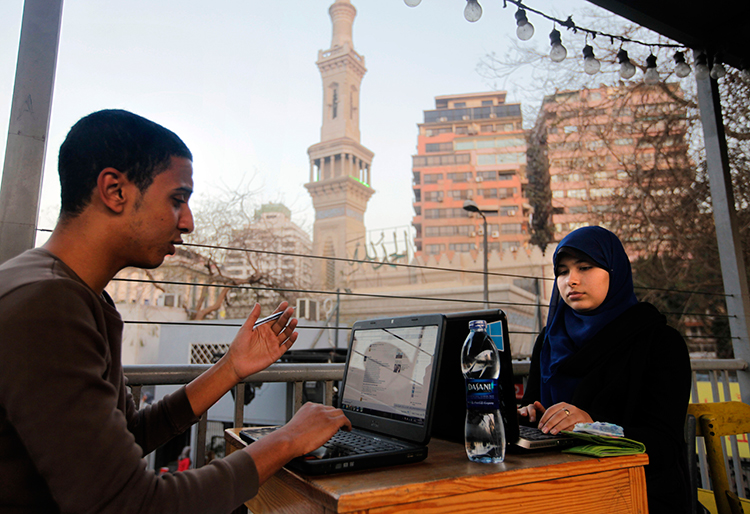Egyptian authorities blocked access to at least 64 websites, including dozens of news websites, between May 24 and June 12, 2017, according to Egyptian human rights group the Association for Freedom of Thought and Expression and news reports. The number was substantially higher than the 21 websites security officials on May 24 told Egypt’s official Middle East News Agency had been censored for “spreading lies” and “supporting terrorism.”
Among the websites AFTE identified as censored were those of five Virtual Private Network services, which could be used to circumvent the censorship, the blogging platform Medium, the news websites Turkey News, Turk Press, Akhbar al-Alam (World News), the Iranian Arabic-language TV channel Al-Alam, and the Egyptian news websites Al-Badil and Bawabet Yanair.
Al-Badil and Bawabet Yanair were both hacked on the night of June 11, the websites reported on their social media accounts. The websites said that attackers published articles “defaming” the Egyptian parliament and its decision to support the transfer of two Red Sea islands, Tiran and Sanafir, from Egypt to Saudi Arabia, according to the statements. Access to both outlets was blocked shortly after hackers planted the stories on the websites, according to news outlets, AFTE, and news reports.
Late on June 11, an article criticizing the Egyptian parliament’s decision appeared on A-Badil‘s website under the byline of Khaled al-Balshy, formerly a board member of Egypt’s Journalists Syndicate and editor of the newspaper Al-Bedaia, according to statements published by Al-Badil and news reports. Al-Badil said hackers had planted the article.
Al-Balshy likewise denied any involvement in writing or publishing the “libelous” article, and said he would file an official complaint to the Journalists’ Syndicate, according to news reports.
Makram Mohamed Ahmed, head of the Supreme Media Council, an entity formed in April 2017 to manage digital and broadcast media that reports directly to the president, had quickly filed a complaint to the Press Syndicate against al-Balshy for the “defamatory” article published under his byline. Ahmed said that the council contacted the Ministry of Telecommunications to investigate the incident, according to news reports.
On June 12, a similar article appeared on Bawabet Yanayir‘s website under the byline of its editor in chief, Amr Badr, according to Badr’s Facebook account and the Bawabet Yanayir. Badr and the website said hackers had planted the article. Later that day, Badr said on Facebook that the website was blocked.
The pro-government news websites Al-Youm al-Sab’a and Sada al-Balad both published responses criticizing both Badr and al-Balshy for the articles that the journalists denied writing.
On May 26, CPJ and 20 human rights and press freedom organizations sent a letter calling on Egyptian authorities to stop blocking access to news websites.
